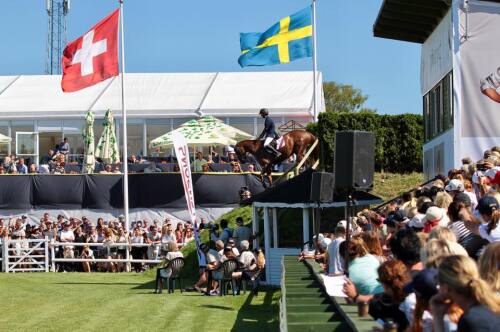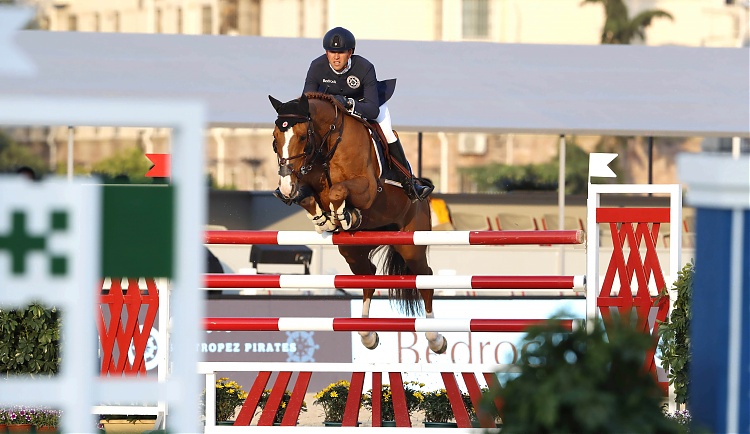The organisers of showjumping’s Global Champions League say comments by FEI President Ingmar De Vos about horse welfare and sporting integrity in unsanctioned events are misleading. During last week’s FEI General Assembly, the FEI Bureau agreed to fight the decision to allow the new team jumping competition to operate, citing rules relating to unsanctioned events, and the protection of horse welfare and event integrity. The Global Champions Tour is FEI sanctioned, but the new Global Champions League team event is not, although it is run alongside the former. At the General Assembly, FEI President Ingmar De Vos said: “Horse welfare and sporting integrity are the two key principles of the unsanctioned events rule, and these principles can only be protected and promoted by putting in place rules, including anti-doping and veterinary regulations, and by making acceptance of international events onto the official calendar conditional upon the Organising Committee adopting all of those regulations and making them binding on all participants in those events. Without these rules, we have no way of safeguarding the welfare of horses and athletes participating in such events, or of protecting the integrity of the events.” https://www.youtube.com/watch?v=4b3Gp9ixHug
Fred van Lierop, a lawyer for the Global Champions League, has written to FEI Legal Director Mikael Rentsch, saying the comments on horse welfare were misleading, as organisers can agree to apply FEI regulations pertaining to horse welfare and the integrity of competition, “or decide to apply a set of rules which guarantees a level of protection equivalent or higher than the FEI”. “Contrary to what it likes to profess to the outside world, the FEI does not have a monopoly on horse welfare and the integrity of competition,” van Lierop writes. “If that is indeed the reason for the strong stance against the GCL, the press release is outright misleading and we will react to it in due time and within the context of the ongoing proceedings.” He said there had never horse welfare or anti-doping issue at any GCT event. “The same dedicated, professional [FEI approved] veterinary team will be present at the Global Champions League event,” van Lierop says. He noted that the Global Champions League did not oppose the regulatory role of the FEI as such, and repeated an invitation for the FEI to perform anti-doping and medication controls at the Global Champions League, with the League paying the FEI for all reasonable associated costs. “I would like to add to this that we disagree that the FEI would not have jurisdiction to perform antidoping and medication controls at the Global Champions League events as non-approved events, or that it would not be authorised to impose sanctions in case of infringement of its anti-doping rules at such events. “First, the FEI rules do not prevent the FEI to perform anti-doping and medication controls at non-approved events. In actual fact, the FEI regularly performs out-of-competition controls. Second, there is nothing that prevents FEI-registered athletes and owners of horses to be sanctioned by the FEI in case of violation of the FEI rules on horse welfare and the integrity of competition, irrespective of whether or not the event where the violation takes place is FEI-approved,” van Lierop says. Give these points, van Lierop says “there exists no regulatory or practical obstacle for the FEI to perform those anti-doping and medication controls at the Global Champions League”. “The FEI Bureau of November 2015 has emphasized once again that the FEI considers it to be its duty as sports regulatory body to protect horse welfare and the integrity of competition, and that this is the reason why it has to adopt a firm stance against the Global Champions League. “Given our invitation, that reason no longer exists. Should the FEI nevertheless decide not to perform its duty and refuse to perform anti-doping and medication controls at the Global Champions League, the only reason for it to do so would be to protect its own commercial interests.”Global Champions League reacts as FEI plays welfare card
-
categories: Global Champions Tour



